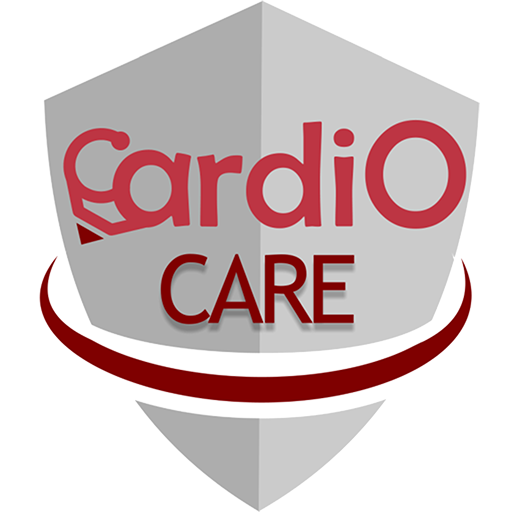CARDIOCARE contributes to the better management of multimorbid elderly breast cancer patients with cardiotoxic adverse effects and to the cost containment in healthcare pathways with:
1. New validated, patient-oriented and stratified care pathways and healthcare models for the management of multimorbid elderly patients
Patient management based on single disease can be inappropriate for patients with multimorbidity that may increase patient burden and lead to fragmented and poorly coordinated healthcare. This becomes particularly important for the management of elderly breast cancer patients at high risk for cardiac toxicity due to cancer treatment. Furthermore, frailty and high risk of cardiotoxicity in this vulnerable group may lead to inappropriate interventions, but also undertreatment, resulting in poorer outcomes, deterioration of QoL and increased healthcare costs. Healthcare institutions and insurance companies seek new ways to reduce treatment costs in chronic diseases such as cancer, and those that succeed to provide effective patient-oriented care with better services and tools are likely to optimise their public spending substantially. In addition, older multimorbid patients describe wanting one professional to take continuing responsibility for their overall care, and to consider their personal situation and preferences when advising about treatment decisions. Recognising these problems and patient needs, CARDIOCARE will develop a cost-effective, multiscale risk stratification model for early detection, prevention and treatment of cardiotoxicity, utilizing new eHealth services, wearables and tools to provide a better coordinated, patient-oriented care pathway to improve intrinsic capacity and QoL. Developing a panel of early biomarkers, psychomarkers and intrinsic capacity quality indicators (WP1, WP2), coupled with predictive and personalised risk modelling based on machine learning approaches (WP3), will allow healthcare providers to better monitor health status and QoL trajectories across the cardiotoxicity disease continuum. This will enable them to advice and intervene early on high risk patients while saving resources for low risk patients. The risk stratification model will be refined and validated in a multicentre prospective clinical study (WP4), involving partners from different health disciplines and medical specialties. The prospective clinical study will test the efficacy of behavioural and psychological interventions on improving intrinsic capacity and QoL and countering cardiac toxicity. Monitoring and delivery of interventions will be implemented via developed eHealth applications coupled with wearable sensors (WP1, WP5) to allow sharing of information between care providers, identify patient care gaps and support home-based, patient-oriented approaches, including self-management and social innovation. Quality-adjusted life-years (QALYs) and incremental cost-effectiveness ratio (ICER) will be calculated to compare cost-effectiveness of the CARDIOCARE approach versus current practices and indicate where healthcare resources should be allocated (WP6).
2. New clinical best practices for improved management of elderly multimorbid patients
More than 50% of the newly diagnosed breast cancer patients are older than 65 years of age and are particularly susceptible to the cardiotoxic effects of cancer treatment due to age-related risk factors, pre-existing heart disease and a high prevalence of multiple co-morbidities. Considering, that older breast cancer patients are systematically underrepresented in clinical trials, new interdisciplinary clinical studies able to provide evidence-based best practices, specifically directed towards the management of this vulnerable group of patients, are urgently needed. CARDIOCARE will take advantage of its multi-disciplinary group of scientists and extend the current Cardio-Oncology procedures with comprehensive geriatric assessment practices, to define for the first time the concept of intrinsic capacity in the context of co-morbid cardiotoxicity in elderly breast cancer patients. To this end, a multicentre prospective clinical study will be performed to test the efficacy of behavioural and psychological interventions to improve intrinsic capacity and QoL and counteract cardiotoxicity. Interventions delivered via eHealth applications will target patients and caregivers in line with American Heart Association recommendations on Cardio-Oncology Rehabilitation, and the WHO’s guidelines on Integrated Care for Older People (ICOPE) in order to prevent, slow or reverse declines in intrinsic capacity (WP4). The overall approach will provide the means to identify best clinical practices for improving the management of the elderly breast cancer patient, at risk of cardiac toxicity. To promote evidence-based best practices, project’s results including cost-effectiveness analysis of the CARDIOCARE model will be presented in Brussels at the end of the project in a final workshop organized by ESC, with relevant stakeholders including EU policy makers, medical and patient associations (ICOS, EUROPA). A first preparatory workshop at month 36 with the consortium members and members of the medical and patient associations will be organized in Brussels by ESC. In this workshop, with the support of the ESC regulatory affairs committee the required steps and overall regulatory roadmap will be defined to ensure that the information and data to be conveyed and discussed with the regulatory experts are presented in the right way and form (WP6).
3. Developed or modified quality key performance indicators for the management of multimorbidity
Quality Key Performance Indicators (KPIs) are validated indicators of performance for which there is a consensus that they can be used for assessing and changing the provided quality of care. A substantial number of KPIs is available to assess the quality of care for older people including patient reported outcome and experience measures (PROMS and PREMs). However, a specific panel of validated KPIs covering key aspects of the healthcare pathway in older breast cancer patients at risk for cardiac toxicity, is lacking. CARDIOCARE will exploit already available retrospective data from 4 clinical partners (IEO, BOCOC, KSBC, UOI, n >1000) including clinical, imaging, biomarker, psycho-marker, and QoL data to define a first panel of tools that would be utilized as KPIs for effectively monitoring cardiotoxicity, health status, intrinsic capacity and QoL in the elderly breast cancer patients during the cardiotoxicity disease continuum. PROMs, PREMs and other tools such as wearable sensor signals will be incorporated in eHealth applications to simplify the monitoring process and support patient-oriented care (WP1). Additional KPIs for assessing health status such as omics (SNPs, extracellular vesicle microRNAs and microbiome) biomarkers will be included (WP2). Complementary KPIs will be defined for assessing the cost-effectiveness of the CARDIOCARE model and for the acceptability and adoption of the eHealth applications by physicians, patients and caregivers. All defined KPIs will be recorded in the prospective clinical study (WP4), and will be used to refine and validate the risk stratification model (WP3). Using statistical and machine learning approaches KPIs with high predictive ability will be selected and provide the new final set of validated KPIs. The final set will be further explored to help identify areas of care in need of improvement and potential interventions to improve patient-oriented care.




